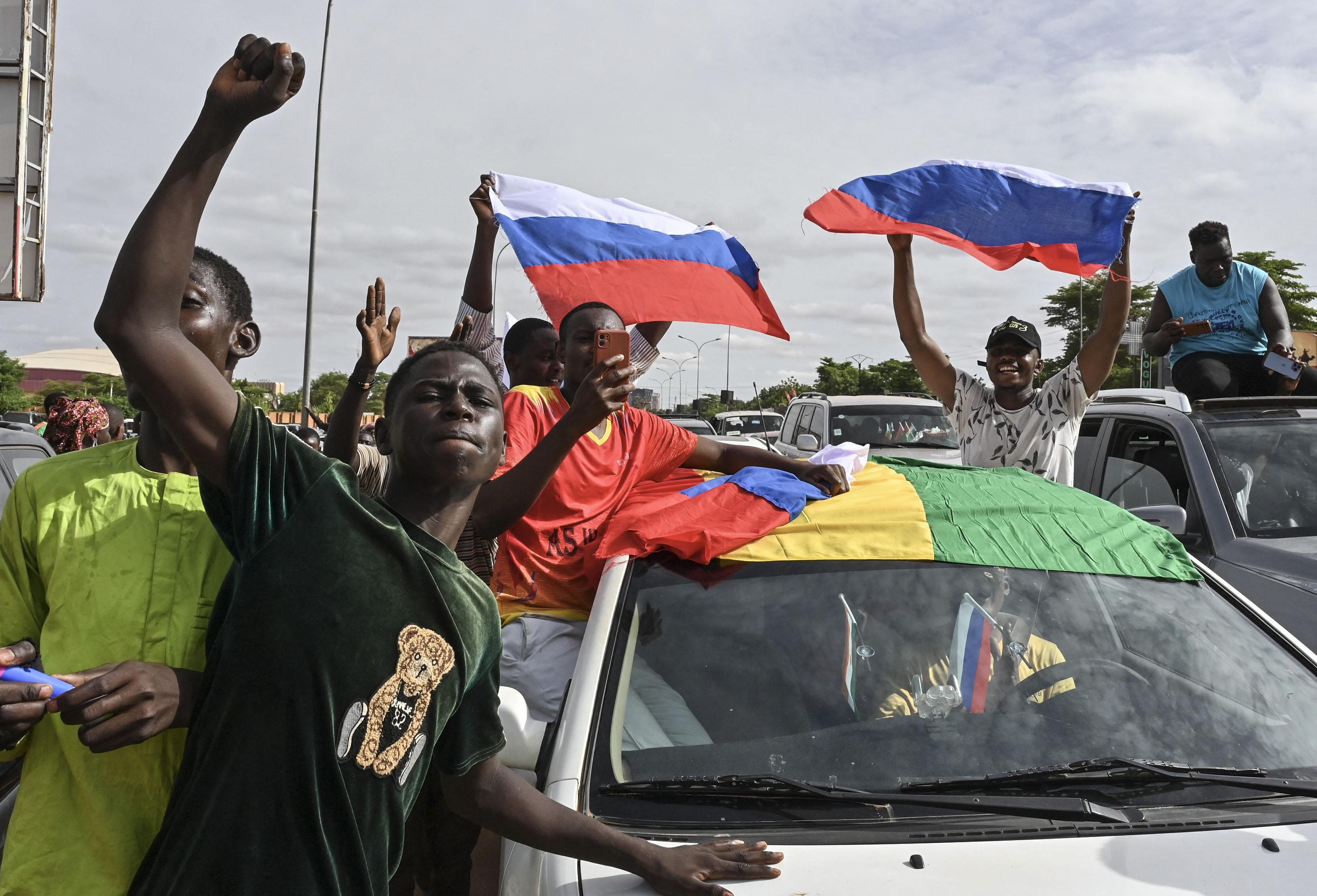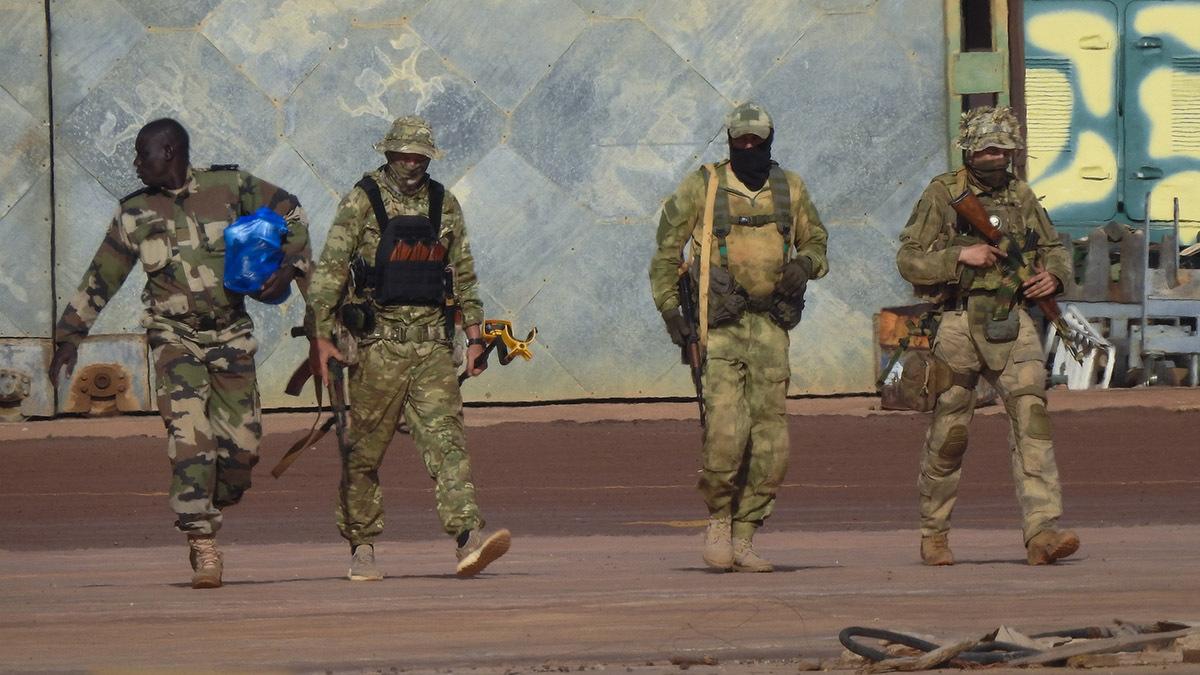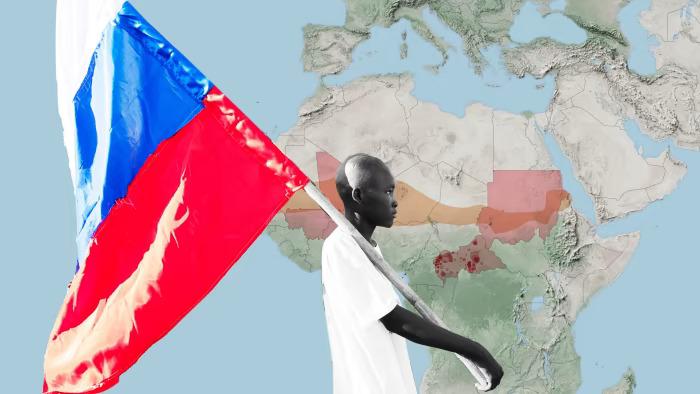Russia’s growing footprint in Africa What is the limit?
On June 4, Russian Foreign Minister Sergey Lavrov arrived in Guinea on his latest visit to West Africa, where coups and growing discontent with traditional allies like France and the United States have contributed to some countries’ shift toward Moscow. Lavrov's frequent trips to Africa are not a new phenomenon, as in the last few years, Russia has sought to boost influence on the continent through its notorious mercenary groups, particularly the Wagner group. Since 2016, Russian private military companies established a permanent footprint in countries like Chad, Niger, Mali, Burkina Faso, Central African Republic, and Libya.
In Mali, surveys show that some 84 per cent of the population has a positive opinion of Russia. Conversely, anti-French propaganda has been in full swing since France’s intervention against jihadism in 2014 got bogged down. France’s failures to topple violent jihadist groups in Mali led to its harsh criticism promoted through the Russian-led international media outlets. In the meantime, Russia advocated itself as a "peace supporter" in Africa with the aim of contributing to stability. As a result, the French troops began to withdraw from the region, while some local radical Islamist groups managed to stage a comeback.

In light of Russia's deepening engagement with Africa, many argue about the main reason for Moscow's pivot to Africa in the last ten years. Russia relies on the legacy of Soviet policies, which viewed Africa as an important ideological battleground during the Cold War. At that time, Moscow supported anti-colonial independence and liberation movements and provided development assistance. Although Russia’s presence in Africa was interrupted by the collapse of the Soviets, it succeeded in returning to the continent in light of the confrontation with the West after the Crimean War in 2014. Hence, Russia is determined to keep Africa in its sphere of influence by largely instrumentalizing regional instability and endless civilian wars on the continent.
So far, Russia has invested minimal time and funding in Africa. But it is still steadily making inroads in various countries. Its presence delivers good publicity that undermines Western attempts to isolate Russia. The Russian authorities successfully filled the gap in unstable and war-torn countries, particularly in the Central African Republic (CAR). Despite being under the strong influence of France militarily, economically, and politically for several decades, Paris's attempts to bring progress in this politically fragmented country did not yield significant results. As such, it left a back door for Russian mercenary groups like Wagner's entrance to help consolidate the current CAR government and prevent rebel groups from extending their control. Wagner's entry into CAR was clearly an opportunistic move by Russia to exploit France's failures and the favourable context for a new security interlocutor.
Moreover, the presence in Africa enables Russia to divert the attention of the United States (US) and Western partners from the Ukrainian war since February 2022. In light of human losses and casualties, Russia began recruiting additional mercenaries in Africa to fight in Ukraine and Africa against Western-supported groups.

Reportedly, new mercenaries from Rwanda, Burundi, Congo, and Uganda are being recruited as assault troopers by a specially created unit of the Russian Defense Ministry. The mercenaries are lured by a starting payment of $2,000 for signing a contract, promised a monthly allowance of $2,200, health insurance, and Russian passports for them and their families.
For many African states, Russia is one player among many. The recent occurrence of Russia in Niger and Burkina Faso strengthens the assumption that Russia utilizes its political influence to loot valuable resources from West Africa and that this is a highly profitable activity. Estimates for the money Russia has made from West African gold range as high as $2.5 billion. Money from gold is then ostensibly funnelled to Moscow and used to wage war in Ukraine and bypass international sanctions that are designed to isolate the Kremlin.

Nevertheless, Russia remains a minor player in the sub-Saharan African trade. Russia's commercial relations are driven by capital expenditures by state-owned firms, which provide credit and make investments primarily through mergers, acquisitions, and joint ventures. The military activities of Russia in Africa have proven to be a tool for its foreign policy agenda amid confrontation with the West. Moscow successfully utilized its presence in Africa against Western powers to brand itself as a leading global actor.








